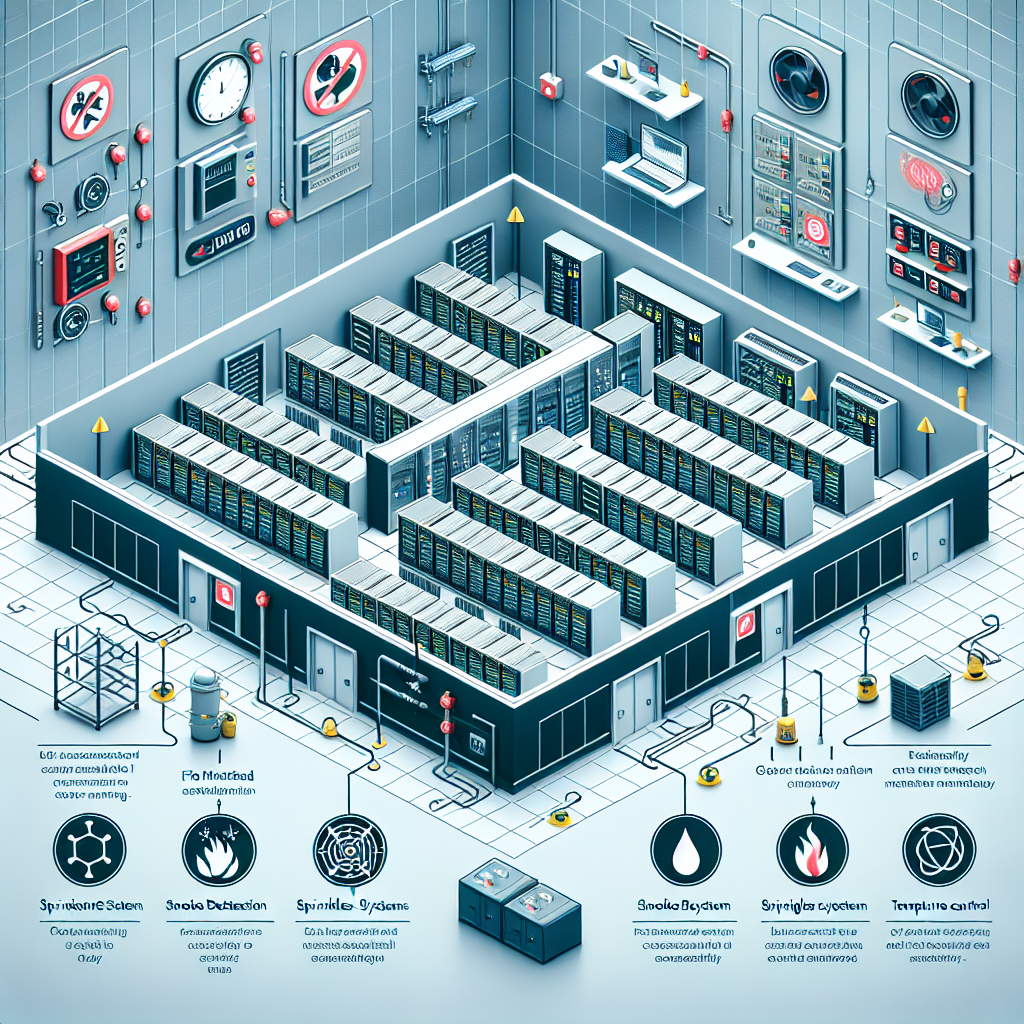Your cart is currently empty!
Implementing a Comprehensive Fire Suppression Plan for Your Data Center

Data centers are crucial components of modern businesses, housing the servers and infrastructure that store and process valuable information. With the increasing reliance on digital data, protecting these facilities from potential disasters, such as fires, is essential. Implementing a comprehensive fire suppression plan is key to ensuring the safety of both the data center and the sensitive information it houses.
There are several factors to consider when developing a fire suppression plan for a data center. The first step is to conduct a thorough risk assessment to identify potential fire hazards within the facility. This can include electrical equipment, overheating servers, and combustible materials. Understanding these risks will help in determining the most effective fire suppression system for the data center.
One of the most common fire suppression systems used in data centers is a clean agent system. This system uses gases or chemicals to extinguish fires quickly and effectively without damaging the sensitive equipment within the facility. Clean agent systems are preferred in data centers because they are safe for use around electronics and leave no residue behind.
Another important consideration when implementing a fire suppression plan is the detection and alarm system. Early detection of a fire is crucial in minimizing damage to the data center and preventing data loss. Installing smoke detectors, heat sensors, and flame detectors throughout the facility can help in detecting fires quickly and alerting staff to take appropriate action.
In addition to the fire suppression system and detection equipment, it is also important to have a well-defined evacuation plan in place. This plan should outline the procedures for safely evacuating the data center in the event of a fire, including designated escape routes and assembly points. Regular training and drills should be conducted to ensure that all staff are familiar with the evacuation procedures and can respond quickly in an emergency.
Regular maintenance and testing of the fire suppression system are also essential to ensure its effectiveness. This includes inspecting the system for any signs of damage or malfunction, testing the alarms and detectors, and conducting regular drills to ensure that staff are prepared to respond in the event of a fire.
In conclusion, implementing a comprehensive fire suppression plan is essential for protecting a data center from potential disasters. By conducting a thorough risk assessment, choosing the right suppression system, installing detection equipment, and developing an evacuation plan, data center operators can ensure the safety of their facility and the valuable information it houses. Regular maintenance and testing of the fire suppression system are also crucial to maintaining its effectiveness. By taking these steps, data center operators can mitigate the risks of fires and safeguard their operations.

Leave a Reply